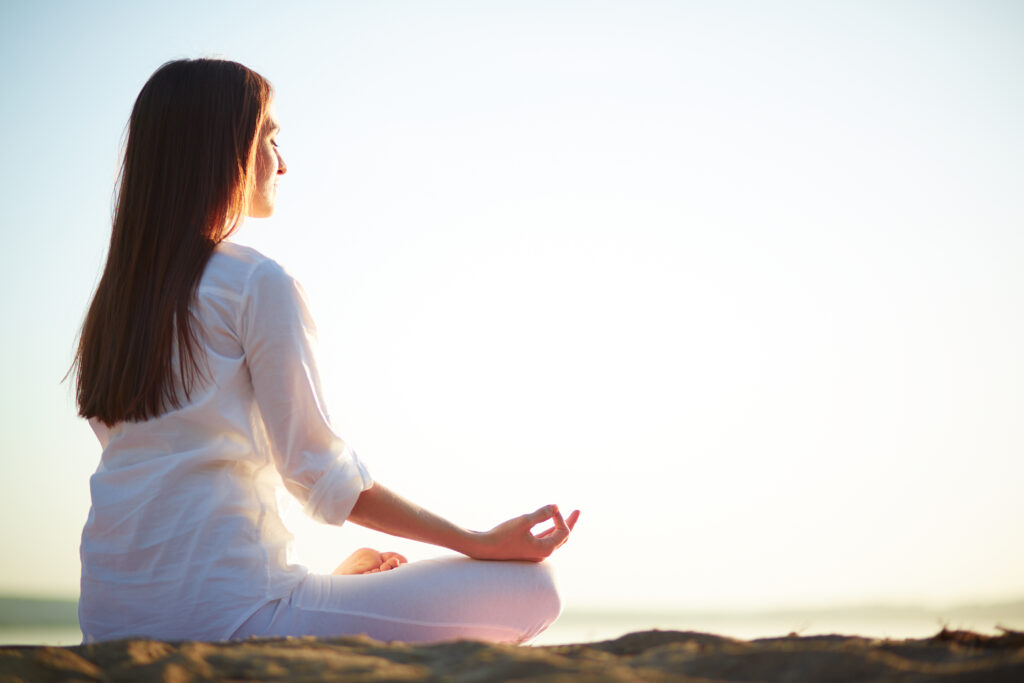Introduction
It can seem like a luxury to find moments of calm and quiet in the fast-paced world of today. Nevertheless, there are age-old customs that provide comfort and mental and physical renewal in the middle of the mayhem. With centuries-old origins, yoga and meditation have become effective methods for stress reduction, wellness promotion, and general life quality improvement. Let’s examine the numerous advantages of integrating yoga and meditation into our everyday routines.

The Benefits of Yoga
Yoga combines breath, movement, and awareness into a comprehensive practice that goes beyond just physical exercise. The following are some of the main advantages of yoga practice:
Stress Reduction: Yoga helps ease tension and anxiety by encouraging relaxation and lowering the release of stress hormones.
Enhanced Flexibility: Consistent yoga practice increases range of motion and mobility by extending and stretching muscles.
Strengthening: Yoga positions call for the activation of multiple muscle groups, which gradually increases strength and stamina.
Better Posture: A lot of yoga poses emphasize balance and alignment, which can help address abnormalities in posture and reduce back discomfort.
Enhanced Mental Clarity: Yoga’s movement and breathing techniques help to reduce stress, increase attention, and improve mental clarity.
More Restful Sleep: Doing yoga right before bed will help you unwind and get your body ready for a good night’s sleep.
Emotional Balance: Yoga promotes emotional control and self-awareness, which helps people better control their emotions.
The Power of Meditation
A condition of inner serenity and presence is developed via the mindfulness and introspective exercises of meditation. The following are a few significant advantages of adding meditation to your everyday routine:
Reduced Stress: By triggering the body’s relaxation response, meditation lowers stress hormones and fosters a calm, contented feeling.
Increased Concentration and Focus: Consistent meditation practice improves concentration and focus, which boosts mental clarity and productivity.
Emotional Resilience: By assisting people in seeing and reacting to their thoughts and emotions with increased awareness and composure, meditation promotes emotional resilience.
Increased Self-Awareness: Meditation fosters introspection and self-reflection, which results in a better comprehension of oneself and one’s inner workings.
Improved Emotional Control: Through the non-judgmental observation of thoughts and feelings, meditation aids in the development of improved emotional control.
Enhanced Empathy and Compassion: Engaging in meditation helps cultivate empathy and compassion for both oneself and other people. It also helps one feel more connected to others.
Enhanced General Well-Being: Consistent meditation practice has been associated with a decrease in the signs and symptoms of anxiety, depression, and other mental health issues, which enhances general well-being.
Including Yoga and Meditation in Your Daily Routine
After learning about the many advantages of yoga and meditation, you might be asking how to apply these techniques to your everyday routine. Here are a few easy pointers to get you going:
Start Small: Take it easy at first, starting with short, doable yoga and meditation sessions. As you get more comfortable, gradually extend the time.
Locate a Calm Area: For your yoga and meditation practice, pick a calm, distraction-free area that is cozy and quiet.
Establish Goals: Whether it’s stress reduction, emotional equilibrium, or relaxation, have a clear objective or focus at the beginning of each session.
Pay Attention to Your Body: When practicing yoga, pay attention to your body’s requirements and limitations. Adjust poses as needed to prevent strain or injury.
Be Consistent: To develop discipline and consistency, make yoga and meditation a regular part of your day by practicing at the same time every day.
Keep an Open Mind: Go into your practice with an open mind and a spirit of curiosity, letting yourself experiment with various methods and approaches.
Exercise Self-Compassion: Recognize that improvement requires time and work, and treat yourself with kindness and patience as you go through your yoga and meditation practice.
Conclusion
there are significant physical and mental health advantages to incorporating yoga and meditation into your daily routine. These age-old techniques provide a route to greater well-being and inner calm, with benefits ranging from stress reduction and enhanced flexibility to enhanced focus and emotional resilience. So why not start living a better, more balanced life right now? With the help of yoga and meditation, spread out your yoga mat, locate a peaceful area, and start your path of self-discovery and transformation.